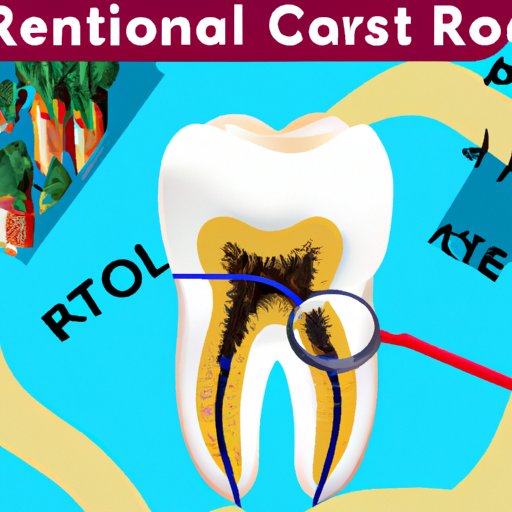Root Canals and Your Health: Separating Fact from Myth

Understanding Root Canals: What Happens During the Procedure?
A root canal is a dental treatment designed to save a tooth that has been severely infected or damaged. During the procedure, a dentist or endodontist removes the infected pulp (the tissue inside the tooth), cleans and disinfects the root canals, and then fills and seals the tooth. This process is intended to stop pain, prevent further infection, and preserve the natural tooth structure.
The intricate anatomy of teeth can make it challenging to ensure every bit of infected tissue is removed, especially in teeth with complex root systems. Despite careful efforts, it is possible for small amounts of infected tissue to remain or for bacteria to persist in side canals that are difficult to access [1] .
Potential Risks and Side Effects of Root Canal Treatment
Root canal procedures are generally considered safe, but like any medical intervention, they carry some risks. Some potential complications include:

Source: envocabulary.com
- Incomplete Removal of Infection: Due to the complex structure of teeth, infected tissue may remain or bacteria may survive in small side canals. This can lead to persistent or recurrent infections, requiring further treatment or, in rare cases, extraction [1] .
- Reinfection: If the tooth is not properly sealed or if bacteria re-enter the tooth after the procedure, reinfection can occur. Symptoms may include pain, swelling, or the return of abscesses. Prompt dental attention is necessary if these symptoms occur [4] .
- Sinus Complications: For upper teeth close to the sinus cavity, root canal treatment can sometimes lead to sinus irritation or infection, resulting in headaches or congestion. In most cases, these symptoms resolve within a few weeks, but persistent issues should be evaluated by a dentist or physician [4] .
It’s important to note that these risks are relatively uncommon, and most root canal treatments are successful in resolving pain and infection.
Do Root Canals Cause Systemic Health Problems?
Concern about root canals causing broader health issues has persisted for decades, often fueled by outdated or discredited research. Claims have included associations with autoimmune diseases, systemic infections, and even cancer. However, the current scientific consensus does not support these claims for most patients.

Source: britannica.com
Early 20th-century studies suggested that bacteria left in root canal-treated teeth could travel through the body and cause systemic diseases. However, these studies have since been widely discredited due to poor methodology and lack of reproducibility [5] . Modern dental practices use advanced sterilization techniques, biocompatible materials, and improved technology to minimize infection risk.
Recent peer-reviewed research and professional dental organizations have found no credible evidence that properly performed root canal treatments cause heart disease, arthritis, cancer, or other systemic illnesses. The American Association of Endodontists, the American Dental Association, and other major health bodies continue to endorse root canal therapy as a safe and effective means of treating tooth infection [5] .
Alternative Viewpoints: Holistic and Biological Dentistry Perspectives
Some holistic and biological dentists express caution about root canal treatments. They cite cases where persistent low-grade infections may contribute to systemic inflammation or exacerbate existing health conditions [3] . Some studies by alternative practitioners have claimed links between root canal-treated teeth and various chronic illnesses, including autoimmune and musculoskeletal diseases, fibromyalgia, and even cancer [2] . However, these links are not supported by large-scale, peer-reviewed research, and many of these findings remain controversial within the broader medical community.
Patients interested in exploring alternatives to root canal treatment can consider options such as tooth extraction followed by replacement with a dental implant, bridge, or partial denture. Each option has its own benefits, risks, and costs, so a thorough discussion with a licensed dental professional is essential.
Making Informed Decisions: How to Weigh Benefits and Risks
When considering root canal treatment, it is crucial to work with a dentist or endodontist who uses modern techniques and follows best practices for infection control. To ensure the best outcome, ask your provider the following questions:
- What are the risks and benefits of root canal treatment for my specific case?
- What steps will be taken to minimize infection and seal the tooth?
- Are there alternative treatment options, and what are their pros and cons?
- How will success be monitored after the procedure?
If you are particularly concerned about systemic health effects, ask your dentist about their sterilization protocols and whether they use advanced imaging to ensure all infection is removed. For those wanting a second opinion, consider consulting a specialist in endodontics or a holistic dentist for additional perspectives.
Accessing Quality Dental Care and Getting a Second Opinion
To access high-quality dental care, consider the following steps:
- Consult your general dentist for an assessment and recommendation. They can provide a referral to an endodontist if specialized care is needed.
- If you want to explore holistic or alternative approaches, search for certified biological or holistic dentists in your area through reputable dental association directories.
- If you have dental insurance, check your plan’s provider directory to find in-network endodontists.
- For those without dental insurance, many local dental schools offer care at reduced cost, supervised by licensed professionals.
Always verify the credentials and experience of your dental provider. You can check state dental board websites or the American Dental Association directory for licensed professionals. If you want more information about root canal safety, visit the website of the American Association of Endodontists for evidence-based guidance and FAQs.
Key Takeaways and Next Steps
The majority of scientific evidence indicates that root canal treatments, when performed correctly, are safe and do not cause systemic health problems for most people. While some alternative practitioners express concerns about lingering infections or inflammation, these views are not widely supported by mainstream medicine. The best approach is to discuss your individual health history and concerns with your dentist, weigh the benefits and risks, and consider a second opinion if needed.
If you experience symptoms such as persistent pain, swelling, or signs of infection after a root canal, contact your dentist promptly for evaluation and possible follow-up care.
To learn more or find a qualified provider, you can:
- Ask your current dentist for recommendations and referrals
- Use official dental association directories to search for local endodontists
- Contact your dental insurance provider for in-network specialists
- Search for “root canal safety” on the American Dental Association or American Association of Endodontists websites for the latest research and patient resources
References
- Elements Dental (2024). Root Canals: Is It A Benefit Or Health Risk?
- Holistic Dental Center NJ (2023). The Silent Impact of Root Canals on Systemic Health.
- Natural Dentistry Center (2015). Dangers of Root Canals.
- Dental Perfection (2024). Root Canal Treatment Side Effects, Risks and Complications.
- Listiyo Family Dental (2025). Can a Root Canal Cause Health Problems? Myths vs. Facts.
- American Association of Endodontists (2024). What is a Root Canal?






